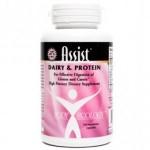
 Despite a burning sensation rising up into the throat and that gnawing feeling right beneath your rib cage, heartburn is usually caused by too little stomach acid, not too much.
Despite a burning sensation rising up into the throat and that gnawing feeling right beneath your rib cage, heartburn is usually caused by too little stomach acid, not too much.
Hypochlorhydria, or a low concentration of gastric acid, has been linked to a long list of disorders related to digestive, immune, and brain function.
Common symptoms of hypochlorhydria include Heartburn, Bloating after meals, Belching, Gas, Easily upset stomach, Constipation, Diarrhea, Food poisoning, Food sensitivities, Candidiasis, and Difficulty digesting proteins.
Why We Need Plenty of Stomach Acid
Nature designed our gastric juices to be extremely acidic for a reason. The low pH of the stomach activates enzymes, which help to break down food, and protects the body against infection.
Stomach acid is mostly hydrochloric acid, or HCl. HCl activates an enzyme called pepsin, which breaks down proteins into usable parts called amino acids.
The other role HCl plays in the stomach is that it prevents infection, wards off food poisoning, and controls gut dysbiosis.
The small intestine is the part of the gastrointestinal tract that immediately follows the stomach. The small intestine helps extract nutrients from the food that we eat.
While bacteria and yeast certainly grow in this part of the gut, too much of any one bacteria or yeast at any one time can cause an imbalance in the ecosystem of the small intestine to result in something known as gut dysbiosis.
Why is gut dysbiosis dangerous?
- Bacteria naturally reproduce as much as possible when given the opportunity.
- Bacteria that stay in one place and multiply quickly have the opportunity to create gas.
- Gas typically leads to bloating and abdominal cramps.
If You Have Heartburn, You May Need to Increase Your Stomach Acid
Even though you can feel the burning sensation of stomach acid as it creeps up the esophagus, toward the throat, it is essential to ask how the stomach acid got there in the first place.
When it comes to heartburn, low stomach acid is the most common offender.
The esophagus is naturally alkaline, and stomach acid is naturally acidic. When the two meet, of course, there is pain. The solution is not to make the stomach acid weaker, or more alkaline. Unfortunately, this is what many physicians suggest as they write a prescription for a proton pump inhibitor (PPI) or antacid.
The solution is to make your stomach acid more acidic.
In between the stomach and the esophagus is something known as the lower esophageal sphincter (LES). The LES is a one-way valve that allows food to enter the stomach while preventing gastric acid from entering the esophagus.
Excess pressure in the stomach can prevent the LES from doing its job correctly. The result is heartburn.
Pressure, or gas, is the byproduct of multiplying bacteria. When we increase stomach acid, there is more opportunity to control bacterial overgrowth.
Another way to control bacterial overgrowth? Limit foods that feed bacteria. This means cutting back on carbohydrates and leaving things like bread and refined grains out of your diet. Incorporate cultured vegetables and probiotic beverages to nourish the beneficial bacteria in your gut.
Bacterial Overgrowth Can Stress Every Cell in Your Body
Whether it is low stomach acid, too many starchy foods that feed bacteria, or a combination of these factors, once bacteria have the opportunity, they will multiply as quickly as possible.
As bacteria begin to colonize the small intestine, they produce gas. This gas can affect your digestion in a number of ways, ranging from cramping and belching to constipation.
Unfortunately, all this activity also can inflame the tissue lining the intestinal wall.
Under the right circumstances, inflammation protects the body against infection. When inflammation is chronic, or ongoing, it can lead to tissue damage. In order to control tissue damage, the body releases cortisol. If an inflammatory trigger persists, the body continues to release cortisol.
Cortisol, while controlling inflammation, is a stress hormone and dampens, or weakens the immune response system.
This means that when tissue lining the intestinal tract becomes inflamed from bacterial overgrowth, it is not just the intestinal tract that picks up on stress hormones. Practically every cell in the body is reading the stress response, including the mind.
Is Low Stomach Acid the Cause of Your Heartburn? Probably!
The best way to find out if you have low stomach acid is to take an HCl supplement before eating a protein-dense meal. Remember, proteins are tough to digest if your stomach acid is too low. If you find that you digest your meal well and feel great afterward, chances are that you needed the extra HCl.
Keep in mind:
- When stomach acid is too low, it is not only your digestion that suffers.
- Low stomach acid contributes to the release of the stress hormone cortisol.
- Because our body is extremely sensitive to this hormone, we literally feel its effects everywhere.
- You can improve your digestion and your stress by making sure you have enough stomach acid.
What To Remember Most About This Article:
It is a common misconception that heartburn is caused by an excess of stomach acid, when quite the opposite is true. Heartburn is a result of low stomach acid that can lead to symptoms like gas, constipation, diarrhea, bloating, food poisoning, and more.
Stomach acid plays a critical role in the digestive process by protecting the body against infection and activating enzymes to break down food at the same time. Having enough stomach acid can also control gut dysbiosis in the small intestine, a bacterial imbalance that leads to gas, bloating, and abdominal cramps.
Chronic sufferers of heartburn can find relief by increasing stomach acid instead of taking over-the-counter antacids, which make stomach acid weaker. Another effective way to control bacterial overgrowth is to limit foods that feed bacteria by cutting back on refined grains and processed foods and enjoying cultured vegetables and probiotic beverages with each meal.
To determine if you have low stomach acid, to take an HCl supplement before eating a protein-rich meal. Proteins are difficult to digest with low stomach acid; if an HCl supplement aids in digestion, it may be exactly what you need to feel your best after eating!
Remember – low stomach acid will impact much more than your digestion. It can contribute to the release of the stress hormone cortisol to affect your total health for the worse if left untreated.

HCl supplement Assist Dairy
& Protein may help with digestion.







